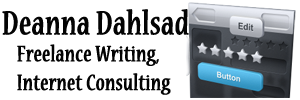 Recently Mike Lieberman advised folks to “go ahead and get rid of that ‘Company News’ section.” Lieberman wrote that in response to an analytical report compiled by Chris Scott of Headscape — more accurately, Lieberman gave his advice based on reading Paul Boag’s post about Scott’s report. To be fair, there is no readily available copy of Scott’s report. But that still doesn’t account for some errors in critical thinking.
Recently Mike Lieberman advised folks to “go ahead and get rid of that ‘Company News’ section.” Lieberman wrote that in response to an analytical report compiled by Chris Scott of Headscape — more accurately, Lieberman gave his advice based on reading Paul Boag’s post about Scott’s report. To be fair, there is no readily available copy of Scott’s report. But that still doesn’t account for some errors in critical thinking.
First, I think it is important to note some specifics about this particular analytical report. A) It was work done for an unnamed “top UK university” (probably the University of Northampton); and, B), the information being shared or discussed comes from just one section of the report, specifically the section about the news stories found on the university’s homepage. No matter how much faith you have in Chris Scott, this information matters — at least it ought to, unless you believe your product and target market are the same as the university’s. In other words, this is very specific and limited information that one should be careful about generalizing into a declaration for all website owners.
That said…
Boag appears to be quoting from Scott’s report:
Less than 1% of visitors view a news release.
We can see by looking at landing pages for visits that include a news release that, when a visitor lands on a news release page, it is typically a dead-end with most of those visitors leaving the site from that page.
Following that, Boag goes on to discuss how corporate news is likely better-off being disseminated via blog posts. (Something I mainly agree with; but put a pin in this, we will get back to it in a bit). From this, Lieberman makes his big declaration:
So there you have it: your company news page – with all its press releases, employee event descriptions, award notifications and job promotion updates – is actually driving your prospects away.
I’m not sure how Lieberman makes the leap from “dead-end” to “driving prospects away”. Then again, even Scott’s use of “dead-end” makes me uncomfortable.
While there very well may be data showing that visitors of the university’s “news” pages leave right after that, we don’t know why they left. Perhaps they found exactly what they were looking for, read it, and left. How does anyone know they haven’t just made the decision to take a campus tour, picked up the phone and requested an application, or otherwise moved from “visitor” to “conversion”? It’s not like university websites are instant conversion sites with “buy it now” buttons and shopping carts. Even with quick conversion options, a click away from your site shouldn’t just be seen as a dead-end or, worse, as if you have driven them away. Without any context that is a short-sighted view.
While the data apparently shows that it is less than 1% of visitors to the university’s website go to the “news” pages, that in-and-of-itself isn’t necessarily a bad thing. It all depends upon what they were looking for, whether or not they found it, and, of course, whether this all pleased them in terms of doing business with the university. But we don’t even have the easiest to obtain information from this report regarding how people came to the university’s website.
Information on referrals, searches, and landing pages (initial and final landing pages) themselves would offer more insight… Are these visitors students, alumni, potential students, potential instructors or employees, parents? How do we know that the website visitor wasn’t a reporter or blogger looking for specific information for a news article? Did people come to the “news” pages from a direct link from another website, the website’s main navigation, an internal website search, or an external search engine like Google?
The point of my post today is, primarily, to illustrate that you have to employ critical thinking when reading studies, reports, articles, advice, etc. The bit of info gleaned from Scott’s report is just that, a little bit of info to add to the “things to think about” pile. But it’s just not enough information, in my opinion, to declare banishing news sections from websites or the main pages of websites.
Which brings me to that pin we put in our conversation… The one about news being better saved for blog posts rather than news pages.
Haven’t we all followed those bad links to articles & information that, despite the search engine preview lines, no longer seem to exist? You land on a 404 page or, as so often happens at a blog, on some sort of month or year archive — and try your search again. Maybe you find it; maybe you don’t. So annoying!
Sometimes this is due to link rot or other information decay; but sometimes it’s because search engines cannot keep up with the rapid pace of our self-publishing world. In other words, search engines may direct visitors to “news” pages because they’re more static and therefore search-friendly than rapidly-changing blog post pages.
Whatever publishing or content management software you are using, whatever you opt to show on your site’s homepage and/or navigation, there’s also the matter of human interaction with the site. Words matter to humans. Does the word “blog” have as much heft as “news”? Certainly with some demographics is doesn’t. And some visitors might be looking for the press version of your news, including printable graphics. Those folks might find the word “press” far more engaging. Again, how you deliver your information — including site navigation — depends upon the who, what, and why of the visitor.
I know you want an easy answer to the “should you have a news section on your website” question. But there isn’t one easy, one-size-fits-all, answer. Those are a lot like one-size-fits-all pants: technically they may have you covered, but they are ill-fitting and unflattering.
In order to have a website that fits the needs of your business, i.e. your customers, you’re going to have to move past easy one-size-fits-all answers into tailor-made decisions of purpose.
PS Here are some tips for understanding and dealing with link rot and your site’s own lost pages.

Leave a Reply